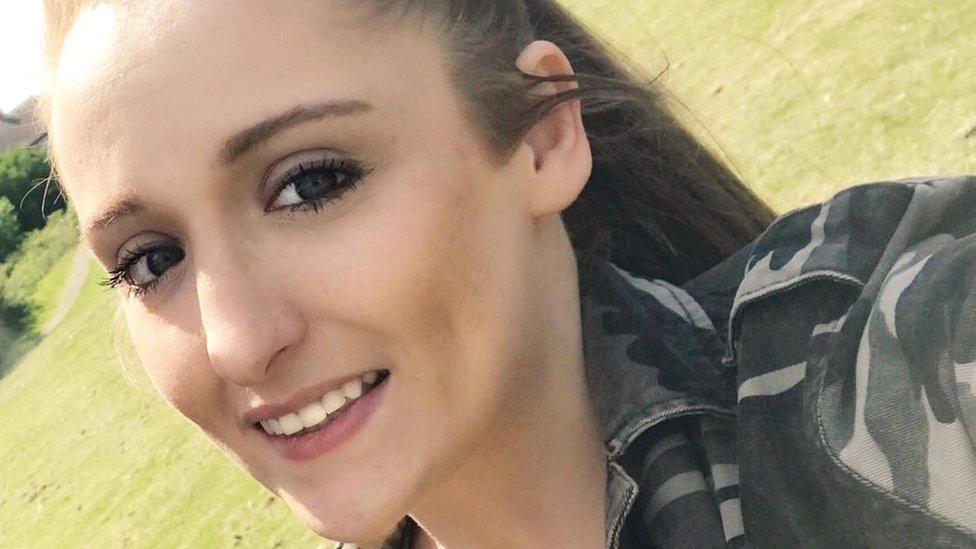Child victims to get support in first Bairns Hoose
- Published
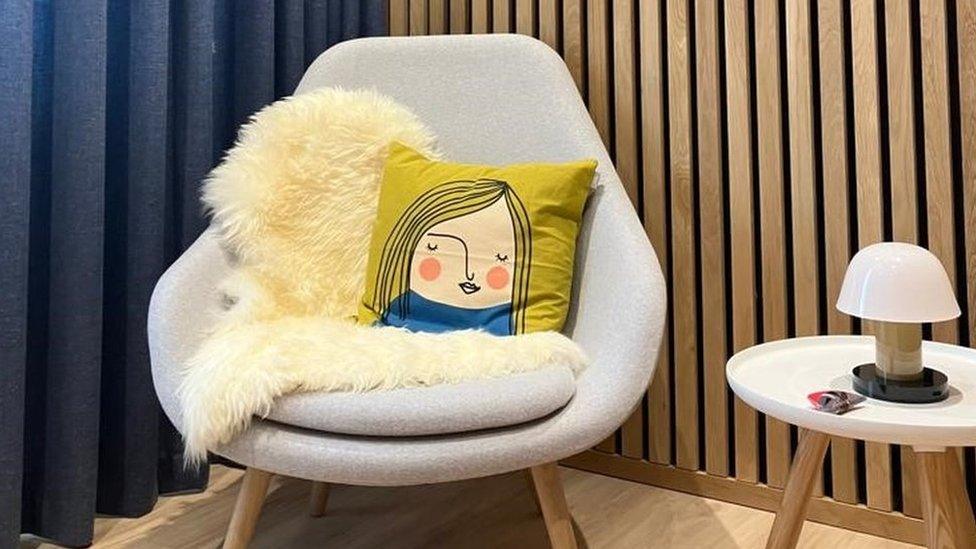
The project will allow victims and witnesses to give pre-recorded evidence, without needing to go to a police station or court
Child victims could avoid going to court and will be offered specialist support as part of new pilot project.
Scotland's first "Bairns Hoose" aims to provide a safe space for young people who have been the victims of violent and sexual crimes.
It will allow victims and witnesses to give pre-recorded evidence, without needing to go to a police station or court.
The trial scheme is based on the Barnehus model used in Norway.
The Scandinavian scheme sees child victims and witnesses give pre-recorded evidence to specially trained police officers in purpose-built centres.
Some judges have suggested that in future the Bairns Hoose model could avoid the need for children to be cross-examined by lawyers - a proposal some in the legal profession are concerned about.
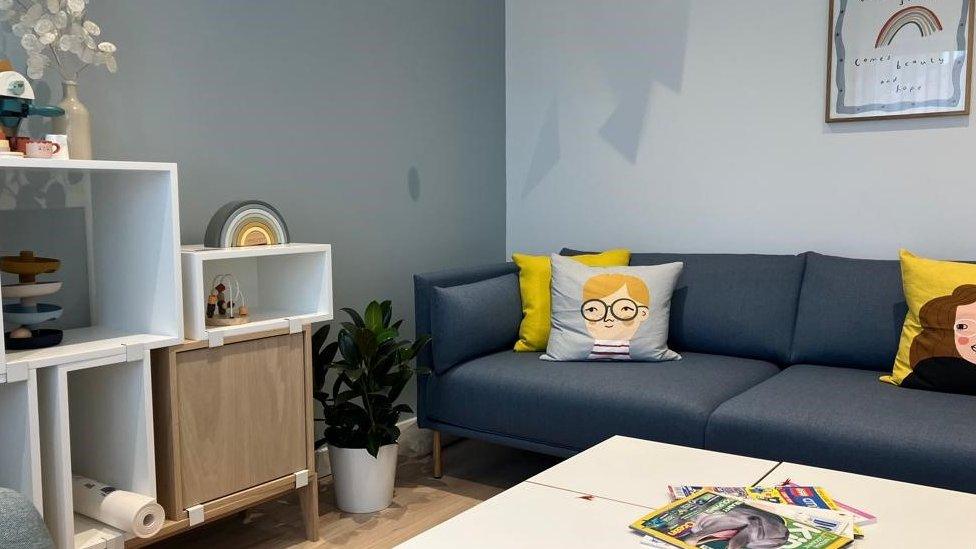
Scotland's first "Bairns Hoose" aims to provide a safe space for young people
Children can already give pre-recorded video evidence in Scottish cases and be cross-examined via video link to avoid the need for them to go to court.
But the charity running the pilot says that seldom happens.
It says far too many child victims still have to go through the trauma of speaking to multiple police officers and officials before eventually appearing in court.
The pilot scheme, at an undisclosed address in the west of Scotland, will be run by Children 1st. The building of the property and the recovery team's work so far has been funded by the People's Postcode Lottery.
It is backed by the Scottish government which also has plans for further pilots elsewhere.
BBC Scotland has been given exclusive access to the "Wee Hoose" which is expected to support about 280 children each year.
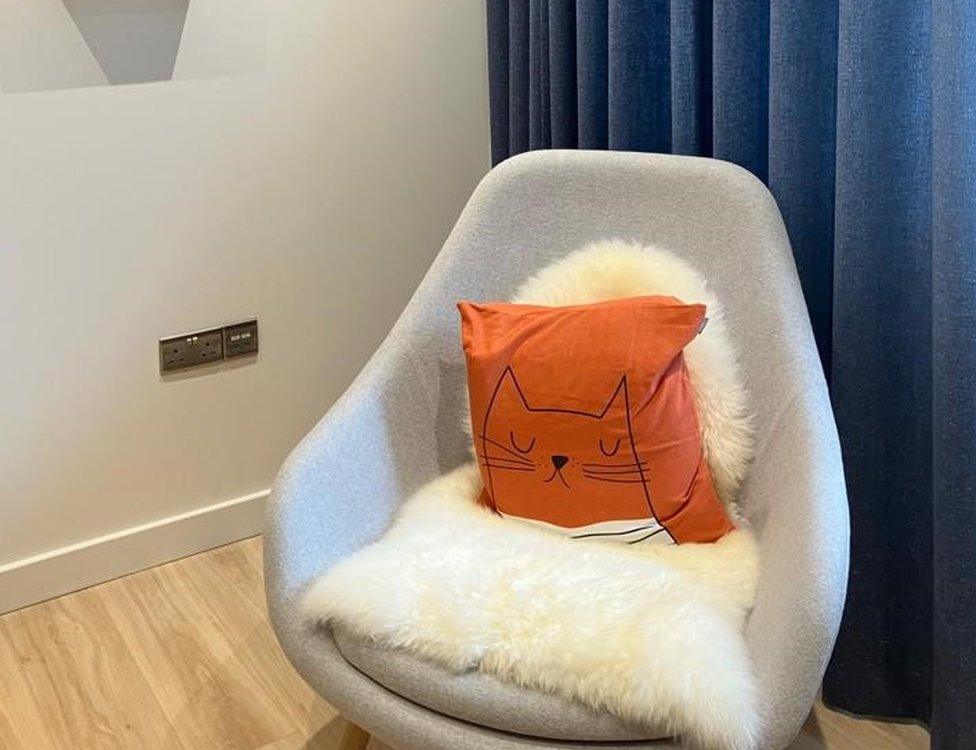
The Wee House is specifically designed to be a calming space for children who have experienced trauma
The house is adorned with sheepskin throws, soft cushions and homely touches. It is modern and bright and specifically designed to be a calming space for children who have experienced trauma.
While the Bairns Hoose was being built, about 100 children in the area have had a support worker during the first phase of the project.
Mia, who is now 17, was one of them, after being sexually assaulted for the second time.
The first rape was when she was 14 and it took her a long time to build up the courage to tell the police.
She says that even then the process was worse than she expected.
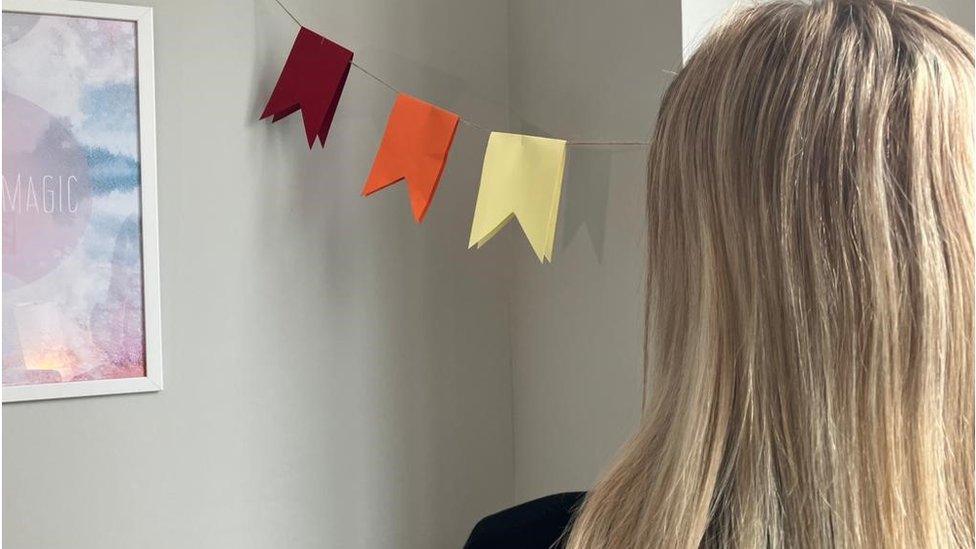
Child victims could avoid going to court under the new scheme
Mia, whose name we have changed to protect her identity, said she had to explain what had happened to lots of different people.
"I had random police just coming to the door," she said.
"It was interrupting my mental health, my education, I was having to take weeks off school to get back to normal. I would lash out at people. I was drinking, trying to get away from it all."
Mia says she was struggling to cope and began to self-harm.
When she went to the sheriff court to give evidence she says she was terrified.
She had asked for special measures as a child but the first person she saw was at court the man who had attacked her standing outside smoking.
"Then I went through all these rooms thinking I could bump into him in any room," she said. "We sat there for two-and-a-half hours and then they said the case is not going ahead today you will have to come back."
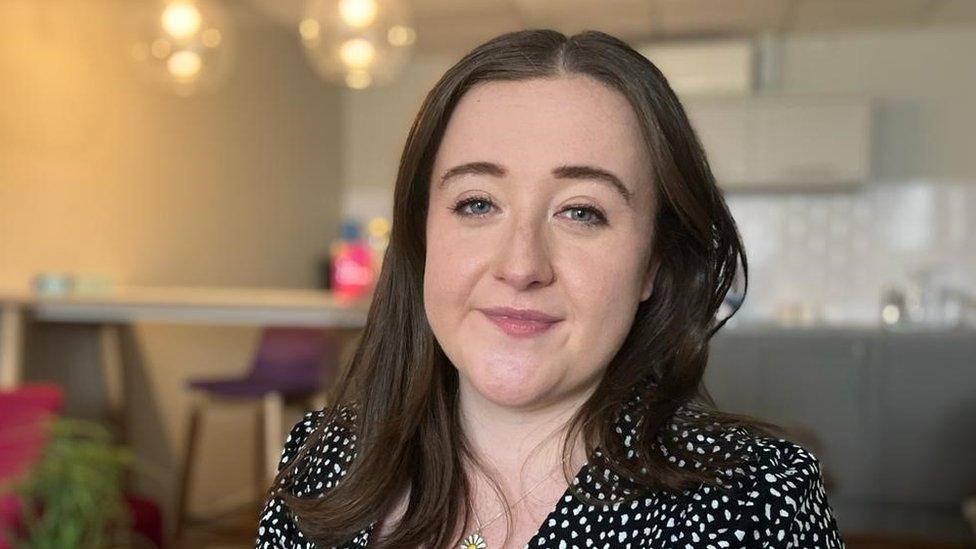
Katie Sutherland, Mia's support worker, says going to court re-traumatises children
A year later, in a separate incident, she was sexually assaulted for a second time.
Mia says having someone she can talk to and who was by her side through the process has really helped.
"If I had had to go to the second case all by myself I would have gone on a worse road than what I was already on," she said.
"Because the first time I went off the rails. I was literally fighting with people."
She said: "My support worker saved my life quite a few times. Without her I would be lost."
Katie Sutherland, Mia's support worker, said going to court re-traumatised children and was too intimidating for them to give quality evidence.
"Often, they lose their words, they lose their memories because the trauma has overtaken them," she said.
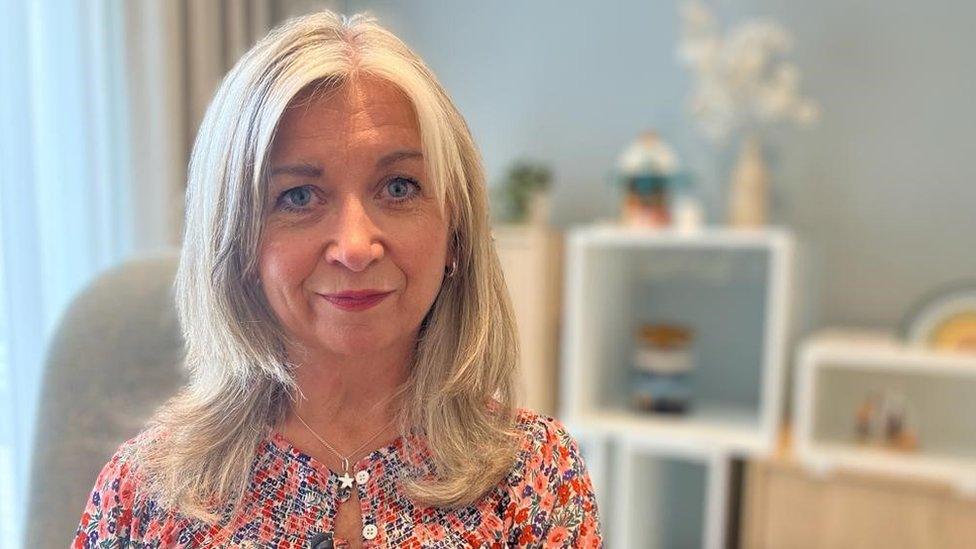
Mary Glasgow says that children are harmed by the current process
Mary Glasgow, chief executive of Children 1st, said: "The evidence is simply unequivocal that children are harmed by the current process.
"What we have created here is a space where children can come once and have all their needs met. It is carefully designed to get the best possible evidence in a way that assures their safety and also gets them justice."
Tony Leneghan, president of the Faculty of Advocates criminal bar association, said he valued putting victims at ease and removing the sense of intimidation or court trickery.
"The only thing that I consider likely to be a negative is removing the role of the cross-examiner," he said.
"I am not in any way against the whole system, I just don't want it to go so far that it begins the erosion of the rights of accused citizens."
A Scottish government spokesperson said: "Bairns Hoose will be a key action in our ambition to Keep The Promise and will ensure that children and young people in the justice system will be able to access a system of holistic support - bringing together child protection, recovery and justice services all under one roof."
They added that there were currently no plans to amend legislation to allow anyone other than a criminal defence lawyer to cross-examine child witnesses.
- Published2 May 2018
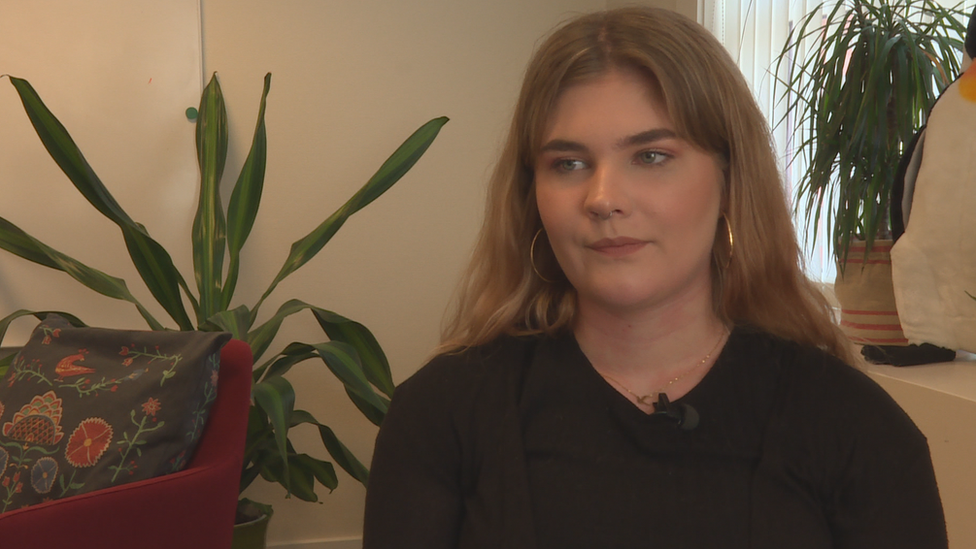
- Published31 March 2022
